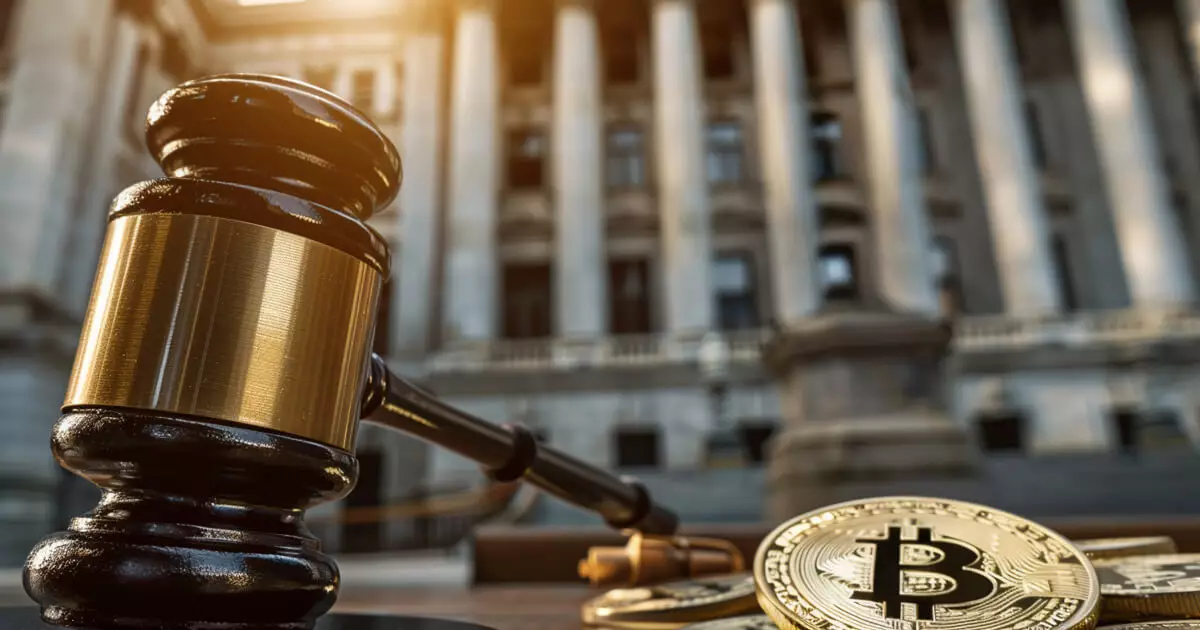The ongoing debate surrounding Bitcoin self-custody highlights a pivotal moment in digital asset rights advocacy, with various organizations striving for favorable legislation. Among them, the Satoshi Action Fund is implementing state-level strategies to provide legal safeguards for Bitcoin users, much in the same vein as the cannabis industry’s fight for state protections amid federal opposition. As Bitcoin continues to grow in popularity, the success of these initiatives could dramatically shape not only digital asset advocacy but also the broader landscape of financial regulations in the United States.
The Satoshi Action Fund aims to create “safe haven” states where Bitcoin owners can freely hold and use their digital assets without the fear of punitive actions rooted in conflicting federal regulations. Dennis Porter, the Fund’s CEO, posits that state laws can take precedence when federal laws do not explicitly prohibit certain actions. This concept is analogous to the cannabis industry, where states have successfully implemented measures to legalize possession and use despite their federal illegality. Porter aptly notes that prior movements, particularly those centering around civil rights and equality, found initial success at the state level prior to achieving federal recognition. His goal is to foster a similar momentum for Bitcoin laws, thereby preventing the mistakes and delays witnessed in the cannabis sector.
Empowered by this vision, the Satoshi Action Fund is proactively seeking to establish a legal framework that would protect Bitcoin self-custody rights. Porter expresses urgency, emphasizing that delay may hinder the Bitcoin community’s advancement much like it did for cannabis legalization. If the movement can harness the legislative will of individual states, there may be an opportunity to influence federal policy, especially as public sentiment shifts favorably toward digital assets.
Cautions from Legal Experts
While excitement surrounds the potential for state-level Bitcoin protections, legal experts offer a more measured perspective. Attorney Joe Carlasare warns of the limitations of state laws, particularly regarding the supremacy of federal law. He contends that while states may enshrine rights concerning Bitcoin, such legislation could easily become moot if the federal government chooses to intervene. Carlasare acknowledges, however, that a federal ban on self-custody of Bitcoin would likely face legal challenges. The comparison drawn between the treatment of cannabis and Bitcoin becomes contentious. Carlasare argues that the current “thriving” status of the cannabis industry doesn’t stem solely from state laws but rather the federal government’s tactical decision to prioritize resources on significant trafficking rather than individual possession cases.
Such dialogue underscores a critical tension in the advocacy efforts: the balance between state autonomy in crafting laws and the overarching authority of federal regulations. The Satoshi Action Fund’s encouragement of state-level actions must therefore navigate these complexities, ensuring that any advancements made in isolation can stand robust against federal scrutiny.
The recent passage of House Bill 2481 in Pennsylvania speaks volumes about the state’s growing alignment with the interests of Bitcoin advocates. This bipartisan legislation aims to safeguard residents’ rights to self-custody digital assets and set forth guidelines for taxing digital asset transactions. Such advancements represent a significant stride forward for Bitcoin advocacy, aligning Pennsylvania with other states eager to legislate within the crypto space. With an estimated 1.5 million crypto owners in Pennsylvania, the implications of this bill could spur similar legislative initiatives across the country, fostering a wave of state-by-state protections.
The Satoshi Action Fund views Pennsylvania’s legislative action as a critical touchpoint that could inspire other states to undertake similar measures. As federal agencies, including the SEC and CFTC, deliberate on various regulatory frameworks for digital assets, the momentum within individual states could lead to more comprehensive and favorable conditions for Bitcoin and other cryptocurrencies.
As various states forge new paths in Bitcoin legislation, the implications for the future of digital asset regulation in the U.S. are profound. The advocacy for protections at the state level may well be the catalyst that fosters a more favorable environment for Bitcoin, while simultaneously challenging the status quo of federal oversight. Unquestionably, the journey toward robust legal protections for Bitcoin users will encounter daunting hurdles, particularly due to the supremacy of federal law. However, the collective momentum illustrated by initiatives such as those led by the Satoshi Action Fund and bolstered by significant legislative victories like Pennsylvania’s House Bill 2481 reveals an evolving landscape.
As discussions continue and strategies develop, the outcome of these state-level efforts may determine the future rights of Bitcoin custodians nationwide, shaping the interaction of state and federal law in the digital economy.















